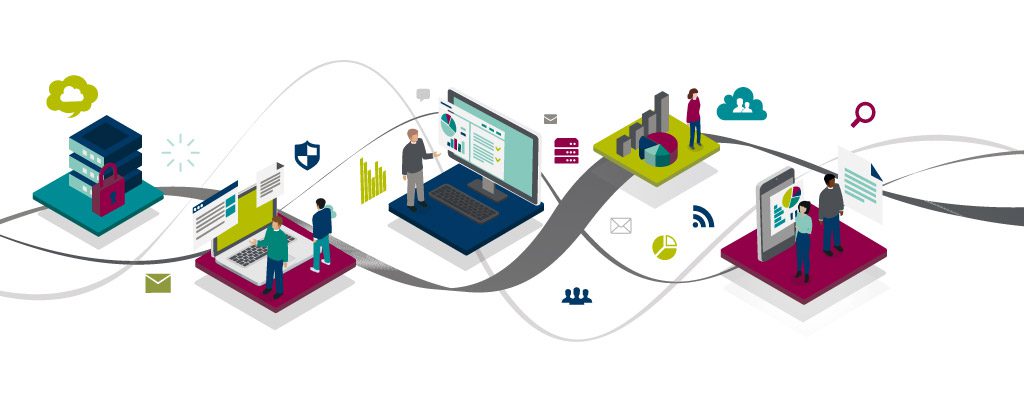ESG: What is it, and why Finance?
Blog post
Share
The world has changed a lot in the last few years, and businesses are learning to grow with it. As a result, companies are being tasked with keeping track of their Environmental, Social and Governance (ESG) metrics as an increasingly important data point for investors and consumers alike.
Metrics like employee health and safety, carbon footprint reduction and diversity and inclusion may not be new efforts, but the task of keeping track of them is new for many companies. Additionally, a lot of the metrics ESG is measured in may be qualitative in nature, making it difficult to form processes around tracking them.
Due to the important nature of these metrics, the Office of Finance has been tapped to spearhead the inclusion of ESG reporting into their standard financial reports. While it may be yet another reporting effort to add to an already overworked department, no other organization is as proficient in reporting and as necessarily cross-functional as the Office of Finance. Furthermore, many of the ESG metrics themselves are indicators of financial performance, making Finance the most appropriate home for ownership of these new reporting standards.
Additionally, many of the ESG metrics include risk assessment elements, something that the Office of Finance works closely with auditors (internal and external) to deliver today. Formalizing climate-risk governance and risk management is a natural extension of the already risk-minded Office of Finance.
With all of this in mind, it’s clear why these metrics have been added to the responsibilities of the Office of Finance to report on, and in many cases, to drive altogether. While this additional work may be adding to an already stressful role, it’s a major step in the right direction for our world to make sure businesses are being held accountable as good corporate global citizens.
Additionally, companies who have strong ESG performance also see other measurable impacts, from a consumer and investor point of view and also from an employee retention perspective.
With the right tools and processes in place, ESG can be strategically managed without adding an unreasonable burden to your Office of Finance.

Standardization is key.
As with any new process, standardization is a crucial first step. Integrating the ESG process into the existing financial close process can be a great way of leveraging mature business workflows. By introducing ESG-focused tasks into the close checklist, companies can ensure they’re handling what must be taken care of and reducing the risk of missed controls.
A tool like CadencyDirect® by Trintech can help organizations stay on top of their controls – financial and non-financial alike – by ensuring complete and effective workflows are in place. CadencyDirect allows for organizational harmony with built-in review and approvals processes, comprehensive reporting, and risk tracking. CadencyDirect’s Compliance module is well-positioned to help companies implement an end-to-end ESG solution, including the ability to assign various controls to the appropriate business units, determine whether certain controls are in scope, and handle exceptions in a risk-intelligent manner.
Integrating new ESG controls into existing financial control processes helps to offset the burden that implementing an entirely new process can bring an organization, while still effectively and thoughtfully meeting the requirements and best practices set forth by the SEC. Importantly, these new standards will also expand the role of auditors, which in turn will increase the effort to support an external audit if a company is not mindful of how they’re tracking the controls.
A financial systems solution like CadencyDirect has deeply integrated auditing capability across the platform, ensuring that the right information is not only being kept track of, but is also easy to report on and provide to auditors when necessary.
Once these processes are standardized, optimization is the next step. Due to the highly cross-functional nature of ESG, integration and visibility across the organization should be considered a high-priority item.

Harmonize across your business.
ESG metrics come from all over the business – legal, HR, supply chain, development, training, and so on. Collecting data and introducing processes in a single department or team can be a daunting task. Implementing a process like this globally across an organization can feel downright impossible.
But with the right tools in place, it can be effectively and efficiently managed. Standardization that’s siloed from the rest of the organization and from stakeholders themselves is only half the battle. As a native Built on NowTM application for Servicenow®, CadencyDirect helps to bridge the gap and eliminate the visibility challenges that may otherwise exist.
The CadencyDirect ServiceNow Application extends key functionality and visibility into the wider ServiceNow platform, the go-to choice of enterprise organizations for handling workflows across various departments within a company. Whether it’s case management in IT or Governance, Risk and Compliance teams, ServiceNow is an established best-in-class solution for organizations seeking to simplify complicated processes in a cross-functional manner.
With ServiceNow’s superior workflow functionality, when a control is completed in CadencyDirect, a workflow can be spun up in ServiceNow to automatically update the overall ESG process in ServiceNow’s GRC module. When an issue arises that will impact ESG reporting, an automated workflow can be triggered to the Disclosure & Reporting team, notifying them of the exception and allowing them to react to the exception or make note of it.
This kind of deep, real-time visibility is vital when implementing a new process like ESG, ensuring that any issues that arise are documented well and handled quickly. Tools like the CadencyDirect platform also allow for good processes to be easily repeatable and simple to iterate on as organizations determine what works best for them when it comes to reporting on their ESG metrics.

Lean into ESG.
The ESG reporting standards requested by the SEC can be a great way for companies to be excellent corporate global citizens, and they can be implemented without derailing the teams tasked with handling them. To learn more about how CadencyDirect and ServiceNow can partner with your organization on this journey, contact us.

Written by:
Sam King
Senior Product Owner

